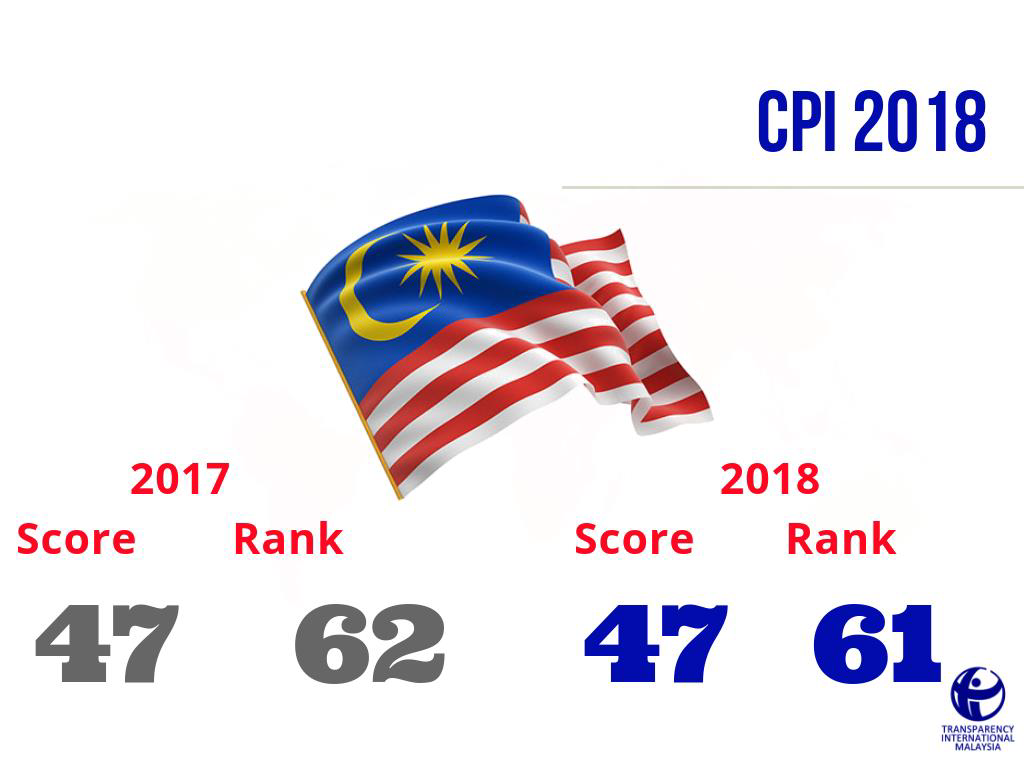
PRESS STATEMENT, Tuesday 29 January , Kuala Lumpur – Transparency International (TI) the global anti-corruption coalition has released its 2018 Corruption Perceptions Index (CPI), that draws on 13 surveys and expert assessments measuring the perceived level of corruption of public sectors in 180 countries and territories in the world.
This year, Denmark and New Zealand top the index with 88 and 87 points respectively as “clean countries”, while Somalia, South Sudan and Syria are at the bottom of the index, with 10, 13 and 13 points respectively. More than two-thirds of countries score below 50, with an average score of only 43. TI reveals that the continued failure of most countries to significantly control corruption is contributing to a crisis of democracy around the world. According to TI, cross analysis with global democracy data reveals a link between corruption and the health of democracies. Full democracies scored an average of 75 on the CPI; flawed democracies scored an average of 49; hybrid regimes – which show elements of autocratic tendencies – score 35; autocratic regimes perform worst, with an average score of just 30 on the CPI.
The survey revealed that Malaysia’s score has maintained at 47points, on a scale from from 0 (perceived to be highly corrupted) to 100 (perceived to be very clean) and the ranking has improved from 62nd to 61st over 180 countries. While Malaysians had voted out the previous regime during the last general election and hoping for new government to lead the reforms in anti-corruption, the Rakyat is looking forward to see the end of grand corruption. To make real progress against corruption in Malaysia, Transparency International Malaysia calls on the government, private sector and society at large to do the following:
- The government and the country’s leaders must provide the leadership and strong political will to drive the message of zero tolerance for graft through solid actions
- Strengthen the institutions responsible for maintaining checks and balances over political power, and ensure their ability to operate at a federal and state level without intimidation – hence there should be holistic reforms to institutions
- Making the government more transparent by introducing access to information law at federal level and public officials assets disclosure for Malaysia to be entitled to join Open Government Partnership (OGP) membership
- Private sector must develop effective anti-corruption programme with strong internal controls in enhancing business integrity
- Tackle the root causes of corruption by educating the young generation from home and at school
- To adapt to technological changes by creating more data scientists to prevent corruption with effective tools.
We can and should do better in the war against corruption.
END
Dato’ Sri Akhbar Satar
President,
Transparency International Malaysia
Transparency International-Malaysia is an independent, non-governmental and non-partisan organisation committed to the fight against corruption.
For more information, please refer to the analysis slides here.









